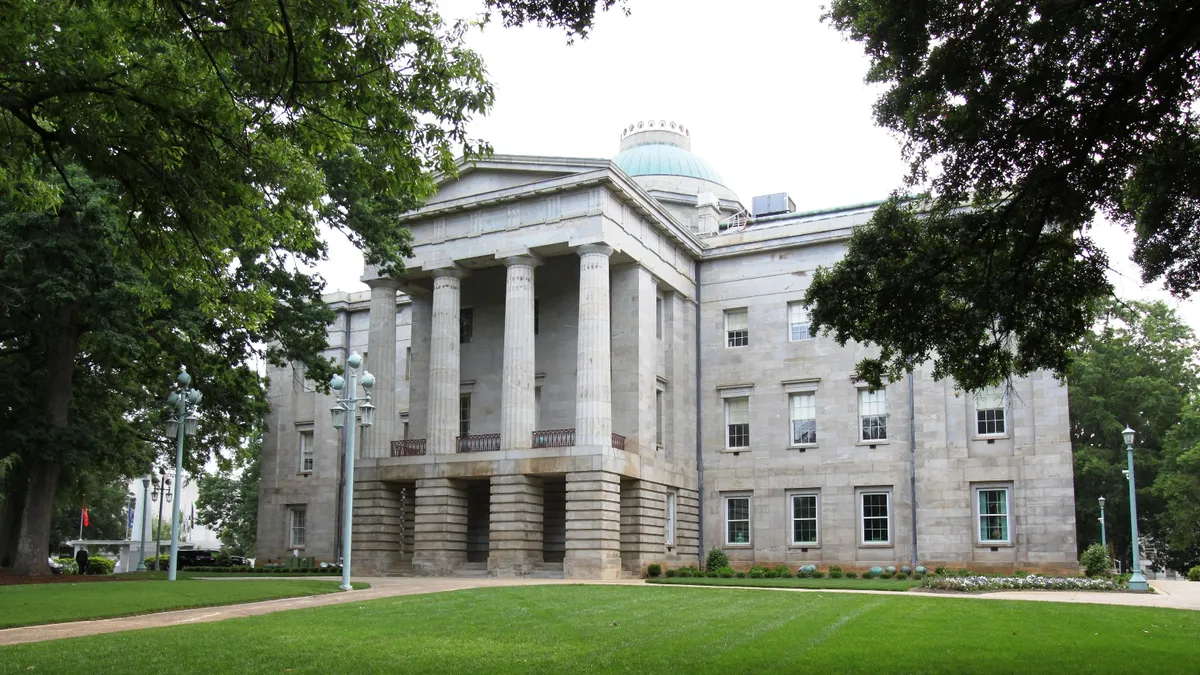Dive Brief:
- Faculty in North Carolina’s public colleges wouldn’t be able to earn tenure if they were hired after July 2024 under a state bill introduced Tuesday.
- Proposed legislation would establish instructors in the state’s community colleges and four-year universities as either at-will or contracted employees. Faculty contracts could run one to four years.
- The bill also would mandate minimum class sizes, determined in part by how many students are studying a particular subject. It also would ask every public institution to draft a report detailing “all noninstructional research” for the higher ed systems, which would in turn present the information to lawmakers.
Dive Insight:
Lawmakers, particularly in conservative-led states, have campaigned to end tenure at public colleges. They argue the traditionally lifetime appointment licenses professors to perform poorly without repercussions.
Texas and Florida have moved recently to restrict tenure, along with other legislative efforts like blocking diversity programs — all initiatives traditionally left to academic leadership.
Meanwhile, defenders of the traditional tenure system say professors need the safety net to engage in potentially unpopular scholarship free from political influence.
A North Carolina tenure scandal reached national heights two years ago.
At the time, the University of North Carolina at Chapel Hill’s governing board declined to vote on tenure for Pulitzer Prize-winning journalist Nikole Hannah-Jones, even though she had been endorsed by faculty leaders. This represented an extreme break in precedent.
Conservative critics, who included prominent donor Walter Hussman, had objected to Hannah-Jones’ work with The 1619 Project, an account in part of how slavery shaped American culture.
Ultimately, amid national pressures Chapel Hill board caved and offered Hannah-Jones tenure, though she elected to instead take a position at Howard University, a Washington, D.C., historically Black institution.
Now some North Carolina lawmakers want to do away with tenure altogether.
The new bill ending tenure would offer contracted employees some protections. They could not be fired unless they breached their contracts for such reasons as incompetence, neglect of duty, serious misconduct. They could also be dismissed if a college declared a financial emergency.
Neither the University of North Carolina System nor the North Carolina Community College System responded to requests for comment Wednesday.
The bill’s provision about evaluating all public colleges’ research initiatives could also prove controversial. After a similar review lawmakers required in 2015, the UNC system’s board shut down three academic centers.
Board members at the time denied the closures were politically motivated, despite one of the centers being privately funded and not subject to state funding.










